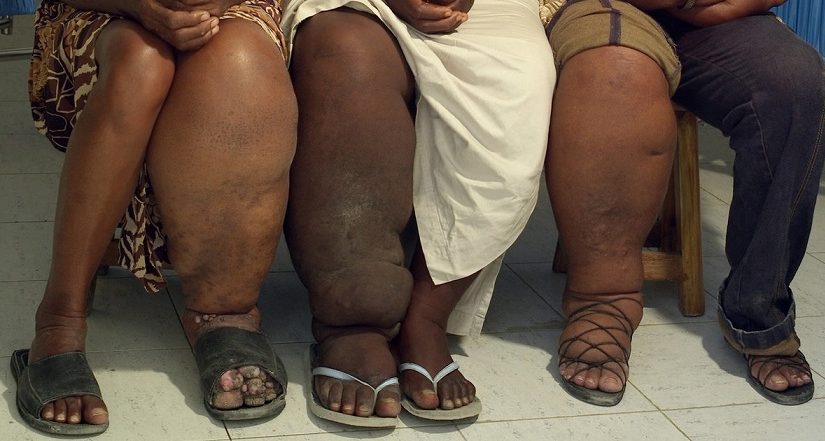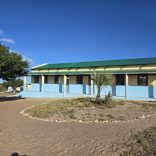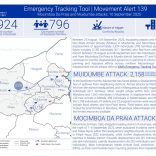Mozambique: Sasol delivers new school block in Inhassoro
Zambezia launches mass campaign against lymphatic filariasis

File photo: Rádio Moçambique
Mozambique’s health service in the central province of Zambezia on Monday launched a mass campaign to treat lymphatic filariasis, schistosomiasis, and intestinal parasites.
The campaign will target over four million people of whom 53 per cent are children between the ages of five and fourteen.
The provincial director for health, Zambezia launches mass campaign against lymphatic filariasis , announced that throughout the week the campaign will administer medicines to treat schistosomiasis to 1.44 million children over the age of five. Kassim estimates that 23 per cent of the province’s population is infected with the parasite, even though not everyone has symptoms of the disease.
Schistosomiasis, also known as bilharzia, is a disease spread by parasitic worms of the Schistosoma genus. The worms are parasitic, not only on humans but also on freshwater snails. The disease is contracted when people swim or wade in water contaminated with the parasites freshly released from their snail hosts.
The worms penetrate the human skin and then migrate to various internal organs, notably the liver. Infection can lead to diarrhoea, bloody urine and faeces, liver damage and kidney failure. Most serious of all, in Mozambique bilharzia is the main cause of bladder cancer, which is incurable.
Schistosomiasis is widespread, and the Health Ministry estimates that in almost half of Mozambique’s districts more than fifty per cent of the population is carrying the parasite.
Lymphatic filariasis, more commonly known as elephantiasis, is a painful and profoundly disfiguring disease. In communities where filariasis is transmitted, it affects all ages. While the infection may be acquired during childhood, its visible manifestations can occur later in life, causing temporary or permanent disability. It is spread by mosquito bites.
Kassim urged the entire population of the province over the age of five to attend the treatment centres, and called on parents, guardians, and teachers to spread the campaign’s message so that the government’s vision can be realised.
The campaign will involve over 900 health teams composed of health professionals, support staff, and drivers.
The World Health Organisation (WHO) estimates the number of schistosomiasis-related deaths across the globe at 200,000 a year, while a further 20 million live with severely debilitating consequences of the disease.













Leave a Reply
Be the First to Comment!
You must be logged in to post a comment.
You must be logged in to post a comment.